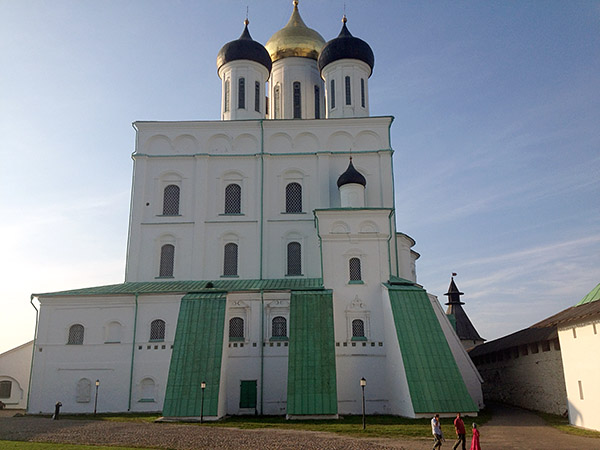![]()
What you must do in this unit
- Read the textbook chapters 6, 7 and 8.
- Check the remarks by Professor Evans on the Mongols and Russia. You can also watch my short video on the Mongols.
- Study the Questions to Consider and the Key Terms for the Unit.
- Submit the Mongol paragraph.
What you can do in this unit
- Read the notes by Professor Hammond on the "Mongol Influence on Russia,"a very good summary of the pros and cons of the debate over whether the Mongols were "good" or "bad" for Russia. (*.PDF file)
- Read the notes on the Mongol Invasion of Hungary in the thirteenth century. These were done by Maria Grof-Tisza, a student in HIS 111.
- Read chapter 6, chapter 7, chapter 8 and chapter 9 from Mary Platt Parmele (1843-1911) A Short History of Russia (1907, 4th edition). These are short chapters, and this is optional reading.
Some videos that you can watch for this unit
- See the videos dealing with the Mongols in the HIS 111 Course.
- Russia, the Kyivan Rus, and the Mongols: Crash Course World History #20
- The Mongol Invasion of Ancient Rus'
- If you are interested in watching a really, really bad movie, you can check out The Conqueror (1956), starring John Wayne as Genghis Khan, leader of the Mongols.
- For extra credit please suggest to your instructor a relevant video for this unit of the course. Send the title of the video, the URL and a brief explanation of why you find the video interesting and applicable to the material that is being studied in this unit.
Extra Credit Options
- For up to 25 points of extra credit, watch Mongol (2007, directed by Sergei Bodrov) and write a one-page paper examining some of the motivations that propelled Genghis Khan to embark on a life of conquest.
- For up to 25 points of extra credit, read David Nicolle, et al, Kalka River 1223: Genghiz Khan's Mongols Invade Russia (2002) and write a one-page paper that answers the question, What factors contributed to the Russian defeat by the Mongol forces?
- For up to 25 points of extra credit, one of the most famous, surviving pieces of medieval Russian literature is the Song of Prince Igor (various titles); this is also available in a version, excellently translated by Vladimir Nabokov (You can also have a look at the Old Russian original). Finally, I want also to mention Aleksandr Borodin's opera, Prince Igor. The opera was not completed by Borodin before his death, but his friends Nikolai Rimskii-Korsakov and Aleksandr Glazunov finished it; it was first performed in 1890. Read "The Song of Prince Igor" and write a paper explaining how the "Song" adds to our understanding of early Russian history.
- For up to 10 points of extra credit, check The Mongols in World History website and write a paragraph that answers the question, What factors allowed the Mongols to construct such a large empire?
Unit Learning Objectives
- Upon successful completion of this unit, you will be able to (1) assess the causes and effects of the Mongol invasion and occupation of Russia and (2) analyze historical primary sources.
